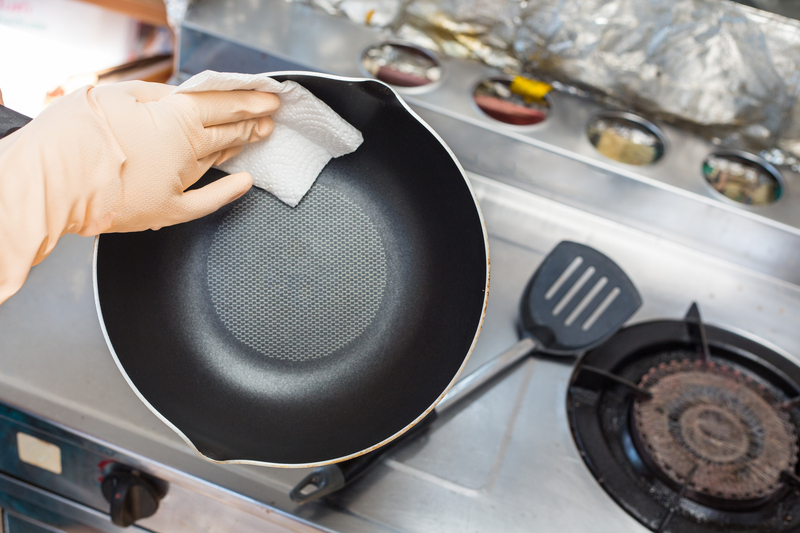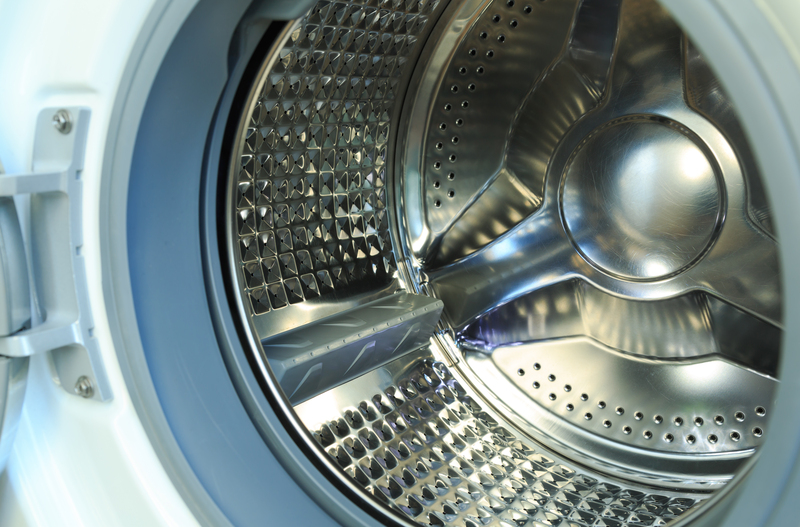Home Carpet and Hard Flooring Cleaning: A Complete Overview
Posted on 12/06/2025
Maintaining a clean and hygienic home often means going beyond surface tidiness and tackling deep-seated dirt, dust, and allergens trapped within your carpets and hard flooring. Whether you have plush carpets or sleek hardwood floors, understanding the right cleaning techniques can prolong the life of your surfaces, elevate indoor air quality, and contribute to a healthier home environment. In this comprehensive guide, we'll provide an in-depth look at home carpet cleaning and hard floor cleaning, outlining best practices, popular methods, essential products, and expert tips to help you master the art of floor care.
Why Carpet and Hard Floor Cleaning Matters
- Health and Hygiene: Clean carpets and hard floors help reduce allergens, bacteria, and indoor air pollution.
- Lifespan of Flooring: Prolong the life of your carpet fibers and hard flooring materials by protecting against wear and grit.
- Appearance: Well-maintained floors enhance the aesthetic appeal and comfort of your living spaces.
- Odor Control: Regular cleaning prevents buildup of unpleasant odors from spills, pets, or moisture.
Neglecting floor care can lead to built-up grime, stubborn stains, and even irreversible damage. Let's break down the key steps and best methods for both carpet cleaning and hard floor care.

Comprehensive Carpet Cleaning at Home
The Importance of Regular Carpet Cleaning
Carpets are notorious for trapping dust, pollen, pet dander, and even tiny insects. Unlike hard floors, debris can settle deep within the fibers, making home carpet cleaning more challenging. Regular maintenance is essential to:
- Prevent Allergies
- Eliminate Dust Mites and Germs
- Maintain Bright, Vibrant Colors
- Extend Carpet Life
Types of Carpet Cleaning Methods
Understanding various cleaning methods helps in choosing the right approach for your carpet type and household conditions:
- Vacuuming: The most basic step, essential for weekly maintenance.
- Use a HEPA filter vacuum for allergy-prone households.
- Focus on high-traffic areas and go over them multiple times.
- Spot Cleaning: Target spills and stains immediately. Blot, don't rub, using a suitable carpet cleaner.
- Steam Cleaning (Hot Water Extraction): Uses hot water to lift dirt from carpet fibers. Ideal for deep cleaning.
- Dry Carpet Cleaning: Utilizes minimal moisture and special powder-based cleaners--suitable for delicate or moisture-sensitive carpets.
- Carpet Shampooing: Involves scrubbing with a foamy solution and rinse, best for heavily soiled carpets.
Pro Tip: Always check your carpet's material and manufacturer's instructions before applying new cleaning methods or solutions.
DIY Carpet Cleaning Tips
- Act Quickly: Treat stains as soon as they happen for the best chance at removal.
- Use Mild Solutions: Vinegar and water can work wonders for many stains but always test on a small area first.
- Don't Overwet: Too much moisture can foster mold growth and damage backing.
- Rinse and Blot: Remove cleaning agents residue by blotting with clean water and a towel.
- Regular Vacuuming: At least once a week; more for homes with pets or children.
Hiring Professional Carpet Cleaners
If DIY methods aren't enough, or if carpets are heavily soiled or delicate, consider calling in professionals. Advantages include:
- Access to commercial-grade equipment and cleaning agents
- Expertise in identifying fiber types and soil issues
- Specialized stain treatment
- Faster drying times
Carpet Cleaning Frequency
How often should you clean your carpets?
- Vacuum: Weekly (or more often for high-traffic and pet households).
- Spot Clean: As soon as stains appear.
- Professional Deep Cleaning: Every 12-18 months (every 6 months for allergy sufferers or busy homes).
Regular carpet care not only keeps your home fresh but preserves your investment in premium flooring.
All About Hard Flooring Cleaning
Not all hard floors are created equal. Wood, tile, laminate, vinyl, stone, and concrete all require distinct cleaning approaches to maintain their appearance and performance.
Understanding Your Hard Floor Surface
- Wood Floors (Hardwood and Engineered):
- Susceptible to water damage--avoid excess moisture.
- Use cleaners formulated for wood surfaces.
- Tile Floors (Ceramic, Porcelain):
- Highly durable but grout lines can stain.
- Requires mild detergents and periodic grout scrubbing.
- Laminate Flooring:
- Moisture-sensitive; use a damp mop, not a soaking wet one.
- Avoid abrasive pads that can scratch the wear layer.
- Vinyl & Luxury Vinyl Tile (LVT):
- Resistant to stains and water but avoid harsh chemicals.
- Frequent sweeping and gentle mopping suffice for routine care.
- Natural Stone (Marble, Granite, Slate):
- Porous and requires specific pH-neutral cleaners.
- Sealing may be necessary to protect against stains.
Essential Hard Flooring Cleaning Tools and Products
- Microfiber Mop: Traps dirt effectively without scratching surfaces.
- Soft Bristle Broom: Protects floors from scratches during routine sweeping.
- pH-Neutral Cleaners: Gentle and safe for most surfaces, especially stone and wood.
- Vacuum with Hard Floor Setting: Allows for deep removal of particles without dispersing dust.
- Specialty Grout Brush: Keeps tile grout lines looking fresh and bright.
Step-by-Step Hard Floor Cleaning Guide
- Clear Floor Area: Remove furniture and rugs for unrestricted access.
- Sweep or Vacuum: Eliminate loose dirt, dust, and debris.
- Spot Treat Stains: Use appropriate cleaner for the floor type and avoid scrubbing too harshly.
- Mop: Use a damp (not wet) mop for most hard floors, and ensure mop is clean before use.
- Dry the Floor: Ensure surfaces are thoroughly dried to prevent streaks and water damage.
Common Mistakes When Cleaning Hard Floors
- Too Much Water: Causes warping or lifting, especially on wood and laminate flooring.
- Using Harsh Chemicals: Damages finishes and dulls the surface of vinyl, wood, or stone.
- Neglecting Grout: For tile floors, grout lines require attention or will attract mildew and stains.
- Skipping Drying: Always dry the floors post-cleaning to avoid slip hazards and water spots.
Professional Hard Flooring Services
Certain floors can benefit from periodic professional cleaning or refinishing:
- Wood floor polishing and refinishing
- Tile and grout deep cleaning and sealing
- Stone buffing and resealing
Such treatments protect your investment and can restore the original luster to worn or dull hard flooring.
Eco-Friendly Carpet and Floor Cleaning Options
Today, an increasing number of homeowners are searching for green cleaning methods to reduce environmental impact and create healthier indoor spaces. Here's how you can adopt sustainable practices in your home:
- Natural Cleaning Solutions: Use white vinegar, baking soda, and eco-certified soaps for spot cleaning.
- Recyclable or Reusable Cleaning Pads: Replace disposable wipes with washable microfiber.
- Low-VOC Formulas: Reduce indoor air pollution by choosing certified low-VOC (volatile organic compound) cleaning products.
- Efficient Water Usage: Mop with minimal water and rinse effiiciently to avoid wastage.
- DIY Cleaning Agents: Mix your own gentle solutions for hard floors and carpets when possible.
By incorporating eco-friendly practices into your floor cleaning routine, you can make a positive impact on both your home and the planet.
FAQs: Your Home Carpet and Flooring Cleaning Questions Answered
1. Can I use the same cleaner for carpet and hard floor surfaces?
It's best to use cleaners specifically formulated for each surface type. Most carpet shampoos and spot removers are not suitable for hard flooring, which can damage the finish or leave streaks. Always read labels and, when in doubt, stick to pH-neutral cleaners.
2. How do I remove pet odors from carpet and hard floors?
For carpets, enzymatic cleaners are highly effective at breaking down organic residues that cause odors. For hard flooring, thorough cleaning with a mild detergent and regular maintenance typically suffices. Ensure the area is fully dried to prevent lingering smells.
3. Is steam mopping safe for all types of hard flooring?
Steam mops can be damaging for wood, laminate, and unsealed floors due to moisture exposure. It's best reserved for well-sealed tile or vinyl flooring. Always check the manufacturer's recommendations first.

Expert Tips for Keeping Carpets and Hard Floors Looking Their Best
- Entrance Mats: Place mats at exterior doors to reduce tracked-in dirt and grit on both carpets and floors.
- Regular Rotations: Rearrange furniture and rugs occasionally to prevent uneven wear.
- Shoe-Free Zones: Encourage family members and guests to remove shoes inside the house to protect all types of flooring.
- Immediate Spill Response: Address liquid or oily spills at once--both carpets and hard floors can be permanently stained if left untreated.
- Routine Maintenance: A combination of daily sweeping or vacuuming and scheduled deep cleans yields the best results.
Conclusion: Achieve Spotless Floors with the Right Carpet and Hard Flooring Cleaning Approach
Home carpet and hard flooring cleaning doesn't have to be overwhelming. With the right tools, a regular routine, and knowledge of which products and techniques suit your flooring type, you can maintain fresh, beautiful floors year-round. Whether you're tackling pet stains on the living room rug or polishing up kitchen tiles, a diligent cleaning regimen pays off in enhanced comfort, improved hygiene, and lasting curb appeal for your home.
Stay committed to routine care, respect each flooring type's needs, and don't hesitate to call in professional cleaning services for periodic deep treatments. By following these best practices, your carpets and hard floors will continue to serve as a beautiful foundation for all of life's moments.
Ready to elevate your home's cleanliness? Start with a thorough floor cleaning session today!




